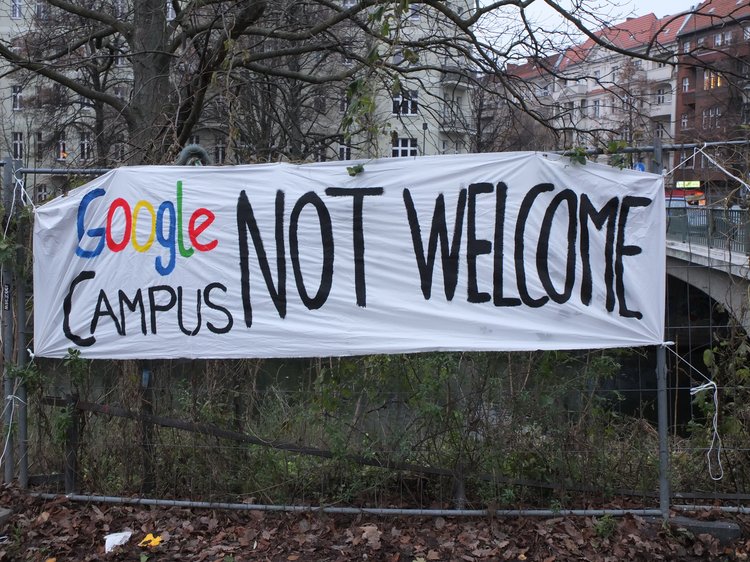Why isn't Google welcome in Kreuzberg? Social movement and the effects of Internet on urban space
Projektinformationen
eingereicht von
Karina Mendonca de Almeida
Betreuende Professur
Prof. Dr. Frank Eckardt
Betreuende
Prof. Dr. Frank Eckardt, M.Sc. Anton Brokow-Loga
Studiengang:
European Urban Studies (englischsprachig) (Master of Science (M.Sc.))
Projektbeschreibung
As the use of the Internet in cities becomes more intense and diverse, there is also a restructuring of urban space, which is experienced by groups in society in various ways. In this scenario, large Internet companies have emerged as new players in the processes of urbanization, either through partnerships with the public administration or through various services offered directly to urban residents. Once these corporations are key actors in the digitalization of urban services, their operations can affect the patterns of urban inequality and generate a series of new struggles over the production of space. Interested in analyzing this phenomena from the perspective of civil society, the present Master Thesis examined a social movement that prevented Google to settle a new startup campus in the district of Kreuzberg, in Berlin. By asking why Google was not welcome in that context, in this project I sought to understand how internet, as well as its main operators, has affected everyday life in the city and how local residents countered it. The case accessed pointed that Google operations have been detrimental to individual autonomy and would contribute to intensifying existing inequalities in Berlin. It also showed that campaigners have been able to prevent the startup campus through the activation of counter-practices that encompass both old and new forms of social interaction, highlighting shared values such as autonomy, self-determination and solidarity.

